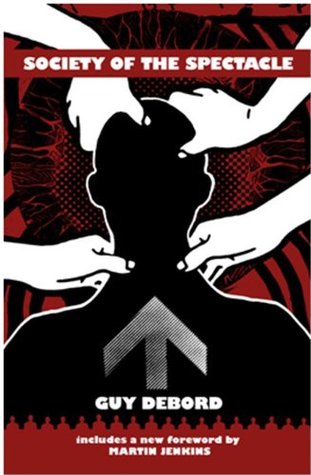More on this book
Community
Kindle Notes & Highlights
Capital itself is the Great Thing set over against human agency.
‘People who talk about revolution and class struggle without referring explicitly to everyday life, without understanding what is subversive about love and what is positive in the refusal of constraints, such people have a corpse in their mouth.’
The spectacle is not a collection of images; it is a social relation between people that is mediated by images.
The spectacle keeps people in a state of unconsciousness as they pass through practical changes in their conditions of existence. Like a factitious god, it engenders itself and makes its own rules. It reveals itself for what it is: an autonomously developing separate power, based on the increasing productivity resulting from an increasingly refined division of labor into parcelized gestures dictated by the independent movement of machines, and working for an ever-expanding market.
In the spectacle, a part of the world presents itself to the world and is superior to it.
This constant expansion of economic power in the form of commodities transformed human labor itself into a commodity, into wage labor, and ultimately produced a level of abundance sufficient to solve the initial problem of survival — but only in such a way that the same problem is continually being regenerated at a higher level.
dissatisfaction itself becomes a commodity as soon as the economy of abundance develops the capacity to process that particular raw material.


